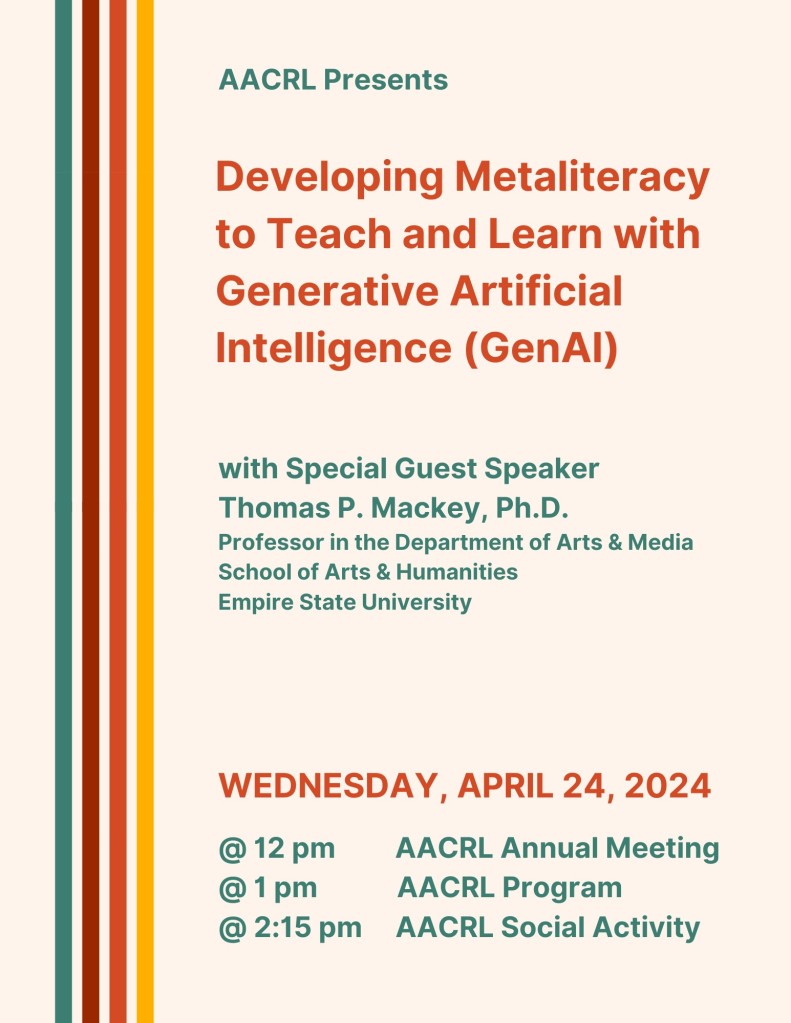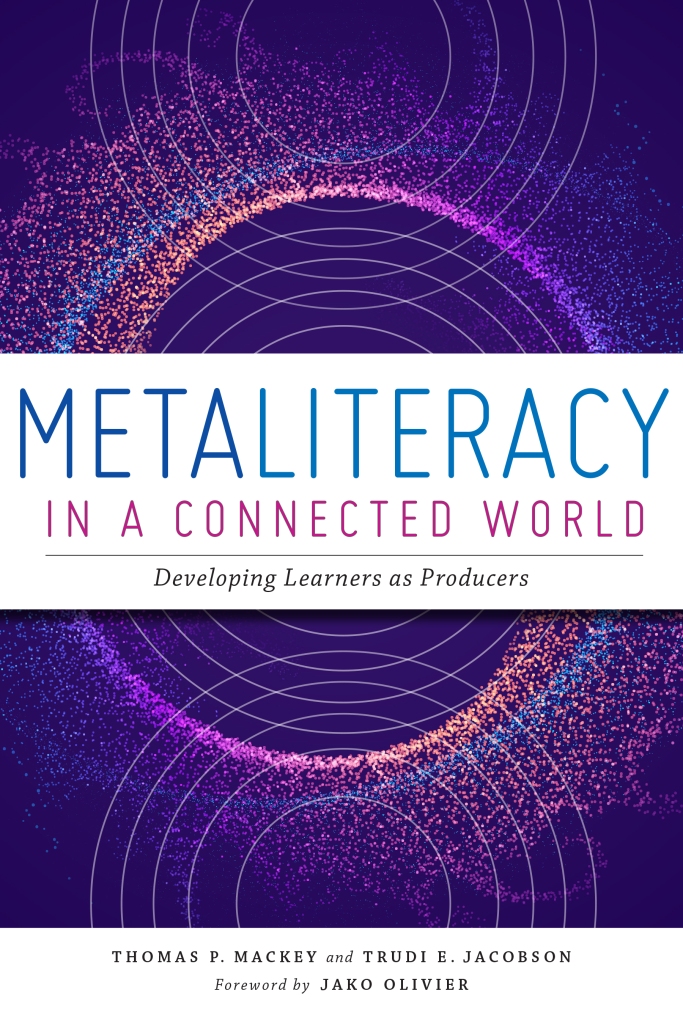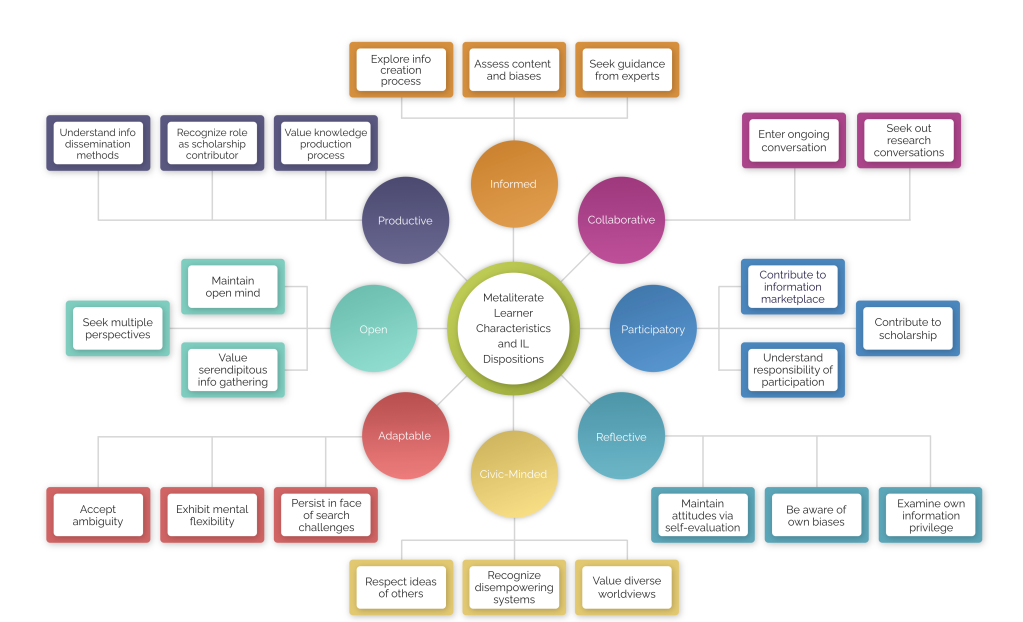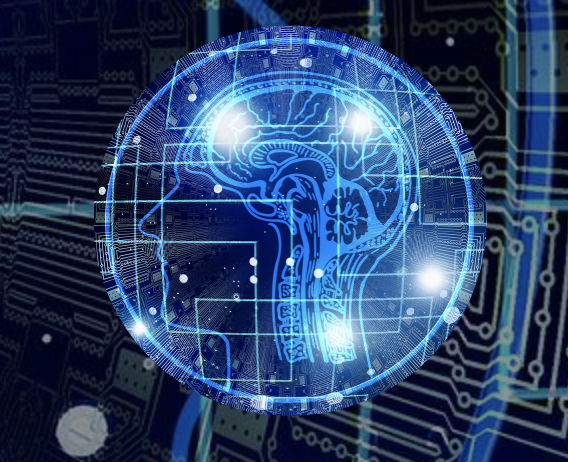
Metaliterate Learning for the Post-Truth World
The forthcoming metaliteracy book Metalierate Learning for the Post-Truth World, edited by Thomas Mackey and Trudi Jacobson will be published in spring 2019. Metaliteracy is a pedagogical model for ensuring that learners successfully participate in collaborative information environments, including social media and online communities. Today’s post-truth world requires learners to ethically produce and share information while checking their own biases, and critically evaluating the proliferation of false or misleading information, unfiltered content, and outright denialism of facts. Indeed, it is clearly evident that the competencies, knowledge, and attributes of metaliterate individuals are critical for grappling with the post-truth era. Metaliteracy supports reflective learning through metacognitive thinking, the ethical production of new knowledge, the critical consumption of information, and the responsible sharing of verifiable content across media platforms. Through metaliteracy, learners are envisioned as teachers in collaborative social spaces. This book examines the newest version of the Metaliteracy Goals and Learning Objectives, including the four domains of metaliterate learning. Several chapter authors explore the relationship between metaliteracy and the Association of College and Research Libraries (ACRL) Framework for Information Literacy for Higher Education.
This new metaliteracy book includes a Foreword written by Troy Swanson, MLIS, Ph.D., Department Chair Library Services, Moraine Valley Community College and features persuasive contributions from information literacy instructors, librarians, and disciplinary faculty. All of the chapter authors present effective methods for advancing metaliterate learning in the post-truth world, exploring such relevant topics as:
Theory
- Strategies for empowering metaliterate learners through the newly developed metaliterate learner characteristics and revised Metaliteracy Goals and Learning Objectives in the framing chapter by Thomas P. Mackey, Ph.D., Professor in the Department of Arts and Media at SUNY Empire State College
- Documentation as an expanded dimension of the metaliteracy model to reinforce ethical and responsible information practices examined by Marc Kosciejew, M.L.I.S., Ph.D., Faculty of Media and Knowledge Sciences in the Department of Library, Information, and Archive Sciences, University of Malta
- Inoculation theory as a way to build resistance to influence in the post-truth world theorized by Josh Compton, Ph.D., from the Institute for Writing and Rhetoric at Dartmouth College
- Scientific literacy enhanced as a holistic learning strategy through metaliteracy examined by Allison B. Brungard, M.L.I.S., from Slippery Rock University and Kristin M. Klucevsek, Ph.D., from Duquesne University
- The synergistic relationship between text and image in photojournalism analyzed by Thomas Palmer, M.S., Digital Media Lecturer from the University at Albany, SUNY, and Editorial Design Director / News Editor at the Times Union newspaper
Practice
- The role of LIS professionals in supporting metaliterate learning and the ACRL Framework in a chapter co-authored by Nicole A. Cooke, Ph.D., M.Ed., M.L.S., and Rachel Magee, Ph.D., M.A., from the University of Illinois
- Teaching students to be wrong through lessons designed with metaliteracy and the ACRL Framework in a freshman seminar developed and taught by Allison Hosier, M.S.I.S., Information Literacy Librarian, at the University at Albany, SUNY
- Developing metaliterate learners as analytical readers and writers through genre analysis and fictionality in first-year writing instruction as described by Jaclyn Partyka, Ph.D., in the English Department at Temple University.
- Incorporating Poetic Ethnograpy and digital storytelling based on poetic narratives from neighborhoods in Philadelphia in the closing chapter by Kimmika L. H. Williams-Witherspoon, Ph.D., Associate Professor in the Department of Theater at Temple University
Metaliteracy is an empowering pedagogical model for preparing learners to be ethical and responsible participants in today’s divisive information environment. This new book showcases several teaching and learning theories and practices that have already proven effective and are certain to inspire new ideas. Metaliterate Learning for the Post-Truth World builds on the two previous metaliteracy books Metaliteracy in Practice (2016) and Metaliteracy: Reinventing Information Literacy to Empower Learners (2014).





